Asian in America and Tiger Mom Amy Chua’s Influence
There is no doubt that Amy Chua’s “Tiger Mom” book sparked a reaction fanned, no doubt, by the incendiary article by the Wall Street Journal. I read somewhere that when people bother you, it’s because they reflect something inside yourself that you are trying to suppress. They are a foil into your own “dark side.” So it’s not surprising that an extreme parenting style that produces a child that appears to be obedient, talented, and smart is an end result we all to achieve.
The thing about parenting is that we parents don’t really know how we are doing until our children are grown up and out of the house and perhaps, even having kids of their own. My husband and I now laugh now at those annual pediatrician visits that were so fraught with stress and sometimes, elation. “He said our child is perfect! Yes! We are not screwing her up!” We’d celebrate on a good visit. On another, depression would follow the visit. “She’s underweight and watching too much TV. Sigh!” Somehow, as a parent, the balance between nurturing and permissive versus tough and demanding (i.e. Tiger Mom-ish) is not easy to achieve.
And so Amy Chua’s parenting style requires a lot of pushback since it’s clear to all of us who are a little horrified but secretly think that maybe, we too, could be a little tougher. Tiger Mom’s kids practice 3 hours a day and that’s insane particularly if it’s not the child’s desire…but my kids practice less than half an hour a day. I don’t time my kids but some days I suspect they 1) forget to practice at all and 2) they spend more time assembling and disassembling their instruments than actually blowing into it.
On the other hand, with so much heated debate over Amy Chua’s article, it was hard to nail down exactly what was so wrong and disturbing about her extreme parenting style. Of all the articles and musings that poured forth, this one by Meghan Daum of the Los Angeles Times nailed it for me. I have an excerpt below. What do you think?
In the eye of the ‘Tiger’
Amy Chua’s ‘Battle Hymn of the Tiger Mother’ has stirred debate over childrearing methods. But it says even more about the author.
by Meghan Daum, Los Angeles Times
“And, yes, I feel her pain that the Wall Street Journal went for the most incendiary stuff in “Tiger Mother” and topped it with a headline she didn’t write. But once I read the book — this can be done, cover to cover, in a few hours — it became painfully clear that Chua’s image problem isn’t really due to her mothering style. It’s due to her inability as a writer to handle the provocative tone of her book, particularly the ostensibly self-parodying aspects. (I think the dollhouse bit was an attempt to make fun of herself.) Where in real life she might be endearingly wacky, she comes across in the book as possibly crazy. For all her controlling impulses, as a writer, she lacks the wit, pacing, and emotional honesty to effectively control her own material.
This is a shame really because Chua has important things to say. Her book raises necessary questions about how permissive parenting affects not just children but society. She talks unflinchingly about the anxieties of the immigrant experience and the way the attendant work ethic feeds the myth that Asians are simply genetically smarter than Westerners.
In the end, though, I have to wonder if her lack of sensitivity to the tone and impact of her words doesn’t in fact deliver a judgment about the very upbringing she espouses.
Chua’s parenting method might garner perfect grades and test scores and multiple Harvard degrees (which she has, thank you very much). But maybe what gets sacrificed along the way is the ability to genuinely laugh at yourself, to recognize the absurd, and to weave it into your existence — in other words, to hone the tools necessary for effectively seeing yourself in full, so that you can make others understand where you’re coming from.
That’s less a skill that can be learned than a gift that can come from only one source: the experience of failure. Surely no kid should be denied that.”
————————
Finally, I find it odd that two Yale Law Professors, both Amy Chua and her husband, spend their limited spare time writing books that are completely off-topic from their profession. You don’t see Harvard Law Professor, Alan Dershowitz, (see list of his publications) penning mystery novels or memoirs on his parenting style. It is as if neither Amy Chua nor her husband finds satisfaction in their careers, and that maybe they’d have pursued a different path if allowed to. Maybe they were scared to pursue writing careers? Maybe they were not self-actualized to know what they wanted? Maybe they lack the self-confidence to pursue something financially risky? Maybe they were used to being told what to do and think? To me, this is very revealing. And will their children be forced down a career path that their parents deem acceptable? Well, it seems that way to me; the leash is very short indeed.
————————-
There was also much consternation from the Asian American community who bemoaned the setbacks in stereotyping that Amy Chua’s hoopla is causing. It’s true. Growing up Asian in America means to most of us, imagery that includes thick glasses, schoolyard teasing and/or fights, and strange packed lunches. In the realm of children’s literature, this is slowly starting to change in an exciting way and now there are books that actually reflect what it means to be an Asian American child in America.
For Teach Me Tuesday, I am celebrating recently published children’s literature that depicts Asian American kids in an authentic and honest way. These four books are all award-winning (or about to win the award) and depict accurate portraits of balancing that line between assimilation and respecting one’s cultural heritage. And what is amazing about this lineup is the diversity of the books: chapter book, easy reader, easy chapter book, and graphic novel!
And the dumpling makes an appearance in each of these books, so I have also included my mother-in-law’s recipe for Mandu, the Korean dumpling version.
p.s. Thank you to Fourth Musketeer for sending me the article.
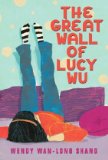 The Great Wall of Lucy Wu by Wendy Wan-Long Shang
The Great Wall of Lucy Wu by Wendy Wan-Long Shang
When this book arrived, my oldest snatched it and ran upstairs with it. Two days later she raved about the book. She’s in 5th grade. This is Wendy Shang’s first book and she’s a new luminous voice in Asian American children’s literature. She really nails it! In The Great Wall of Lucy Wu, the nuances of being Asian in America are depicted: Lucy’s older sister is the “perfect” older sister obedient and accomplished, her older brother is the math wiz who prefers history, and she’s the youngest — the most assimilated, the most athletic, but feeling the most under-appreciated. The parents are not caricatures of the “Tiger Parenting” mold but really do represent typical second-generation Asians.
There are also many interesting twists and turns to this book:
- Popular girl bullying. Queen bee syndrome and all. When Lucy decides to try out for captain of the student (vs. faculty) basketball team, queen bee Sloane tries to derail her using peer pressure and all kinds of nasty girl bullying.
- Lucy’s Asian classmate Talent appears to be Amy Chua as a child; an outsider at school looking in. Talent is impressive on paper but lonely at school and excited about a new Chinese School starting up in a town which seems to conflict with Lucy’s basketball team practice.
- Basketball versus Chinese School. Lucy lives for basketball but her family doesn’t think there is any future for a short Asian girl in basketball and wants her to go to Chinese School instead. In the basketball showdown between the students and faculty, Lucy’s leadership skills do not go unnoticed, and finally, her family can support Lucy’s passion.
- There’s a Joy Luck Club twist that I love. Lucy’s newly discovered Great Aunt is visiting them from Mainland China. At first, Lucy is embarrassed by her F.O.B. (Fresh Off the Boat) ways but grows to appreciate and love her new relative whose presence makes her miss her beloved grandmother all the more.
But it’s the food that brings and keeps the family together which is also very Asian where meals are shared together as a family and one would never eat alone. And dumplings come into play, much as they do at our house, as an activity that is both fun and delicious making Lucy’s birthday celebration truly special. This book was just released this month — January–and I predict that it will be up for a lot of awards. [chapter books, ages 8-14]
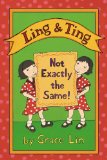 Ling & Ting: Not Exactly the Same! by Grace Lin
Ling & Ting: Not Exactly the Same! by Grace Lin
I LOVE, LOVE, LOVE this easy reader. My six-year-old and I have read it many times and it still cracks us up. It was a 2011 Geisel Honor book. Dumplings are also featured in this short chapter book with six stories recapped in a funny revisionist way by Ting though I am not sure that kids this age can actually roll out the dough AND make the dumplings. No one I know takes that extra step to make their own dough. [easy reader, ages 4-8]
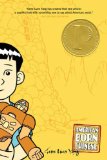 American Born Chinese by Gene Luen Yang
American Born Chinese by Gene Luen Yang
- Blanch Napa cabbage OR bean sprouts and squeeze out using cheesecloth. Mince finely.
- Squeeze out tofu using cheesecloth.
- Mix all ingredients together.
- Place about a tablespoon of filling into the center of a wrapper.
- Dab edges with egg mixture and fold into dumpling shape. Fold wrapper in half to match up sides, then crimp into a fan-like shape. Set on cookie sheet until ready to cook.
- We prefer fresh mandu boiled. Place into boiling water (just like making pasta). When the dumplings rise to the top, they’re ready.
- Eat by dipping into soy sauce and vinegar mixture (1:1).
To examine any of the items listed, please click on image of item. As an Amazon Associate, I earn from qualifying purchases.
BEST #OWNVOICES CHILDREN’S BOOKS: My Favorite Diversity Books for Kids Ages 1-12 is a book that I created to highlight books written by authors who share the same marginalized identity as the characters in their books.


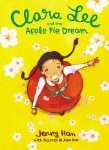
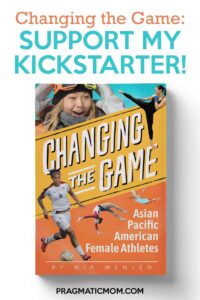
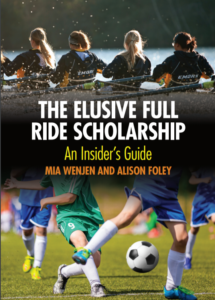

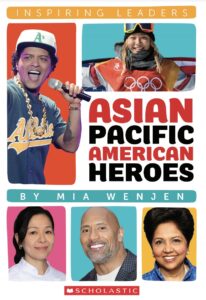

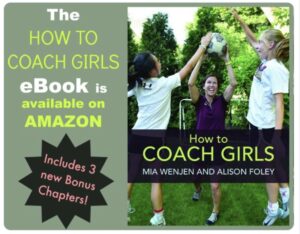


Nice review! Thanks for the Titles. I can use these in my Asian studies-love the recipe!
♥ thank you for your article and book suggestions.
I am AmerEurAsian –
Father born and raised in Shanghai, China
Although I do not look Asian, I am Asian by culture and have raised my family with some ideas I grew up with, not always the best ones either.
It is difficult to relate to average people living in the suburbs now. Only my cousins truly understand the trials and tribulations of being multi cultural.
thanks for writing, thanks for sharing
blessings to your days!
To Tere,
Thank you so much for your comment! I think the beauty of living between two cultures is the food. I noticed the more a country has been dominated by others, the people suffer but the food just gets more and more complex and interesting. Maybe that is the same for those of us who bridge multi-cultures. There’s good stuff and bad stuff so it’s a wash, but then there’s the food. And growing up with multi cultural food is never a bad thing!
oooh. recipe looks good! I will try this one! thank you.
Thanks for your comment on one of my posts! My interest is fantastic literature, not Asian-American literature, but you have recommended what sound like good books.
To Martin,
I am so excited with the new Asian American children’s authors that are now recently emerging. Not only are they bringing their voices and life experiences to a younger generation that really had no literary role model, but they are a fantastically talented bunch! I hope you enjoy the books!
What I see as a problem is the fact that not all Chinese parents subscribe to Amy Chua’s theory and methods of parenting and presenting it as a general way of treating children in China could really offend them.
To Julie,
I’m quite sure that your insightful comment was part of the strong reaction to Amy Chua’s book and WSJ article. But isn’t it funny now how “Tiger Mom” has entered the Suburban lexicon? I think it’s here to stay! And it seems to connote a overly controlling, demanding mom but not necessarily an Asian mom…
Why is the art of music required to endure the ill-informed antics of such inartistic imbeciles as Amy Chua? Her lust for fame as an old-fashioned stage mother of either a famous violinist (yet another mechanical Sarah Chang?) or a famous pianist (yet another mechanical Lang Lang?) shines through what she perceives as devotion to the cultivation of the cultural sensitivities of her two unfortunate daughters.
Daughter Lulu at age 7 is unable to play compound rhythms from Jacques Ibert with both hands coordinated? Leonard Bernstein couldn’t conduct this at age 50! And he isn’t the only musician of achievement with this-or-that shortcoming. We all have our closets with doors that are not always fully opened.
And why all this Chinese obsession unthinkingly dumped on violin and piano? What do the parents with such insistence know of violin and piano repertoire? Further, what do they know of the great body of literature for flute? For French horn? For organ? For trumpet? Usually, nothing!
For pressure-driven (not professionally-driven!) parents like Amy Chua their children, with few exceptions, will remain little more than mechanical sidebars to the core of classical music as it’s practiced by musicians with a humanistic foundation.
Professor Chua better be socking away a hefty psychoreserve fund in preparation for the care and feeding of her two little lambs once it becomes clear to them both just how empty and ill-defined with pseudo-thorough grounding their emphasis has been on so-called achievement.
Read more about this widespread, continuing problem in Forbidden Childhood (N.Y., 1957) by Ruth Slenczynska.
______________________
André M. Smith, Bach Mus, Mas Sci (Juilliard)
Diploma (Lenox Hill Hospital School of Respiratory Therapy)
Postgraduate studies in Human and Comparative Anatomy (Columbia University)
Formerly Bass Trombonist
The Metropolitan Opera Orchestra of New York,
Leopold Stokowski’s American Symphony Orchestra (Carnegie Hall),
The Juilliard Orchestra, Aspen Festival Orchestra, etc.
To Andre,
You are preaching to the choir! Good points that you bring up.
Some words penned in response to the thoughts of a student writing elsewhere . . .
I would not normally lock horns and try to best a junior in high school; I’m hoping you do not read my words here as such, for they are meant for you only as a provocation to further thought to your ideas well-presented.
You’ve written that you “used to get frustrated when I had to practice violin and I really didn’t want to . . .” Do I read correctly that you no longer “get frustrated?” If so, that’s a remarkable advancement. As a musician myself I want to ask you, Why do you practice violin and not another instrument of your choosing less frustrating, for examples, flute, harpsichord, tuba, or tabla. There is a vast – and I do mean vast! – repertoire for each of those, and many other, instruments that could challenge you unendingly for the remainder of your life. Instead of spending hours at your chosen instrument (whichever it may be) in the drudgery of isolated practice, why not spend more of your time in practice with music ensembles of various kinds. This can yield a discipline and advancement of a uniquely different kind. If you are studying formally with a violin teacher I’m quite sure he will confirm the well-founded idea that, as a performer, playing an instrument is one kind of challenge but playing an instrument WITH PEOPLE is significantly more so. A musician in isolation is a musician limited. And herein lays one, only one, of the transparent contradictions of the way Professor Chua has taught her two daughters to approach their instruments; opportunistically solely for unartistic purposes.
A fundamental flaw in the approach to music of Amy Chua – an amusical hack with no known talent for an art of any kind! – is that she has decided it’s perfectly acceptable to pervert one of the greater of the fine arts for use in ulterior purposes. In the example of the Chua family, so-so slogging through masterpieces of music was used to impress others when applying for admission to university. (Would Professor Chua dare to advocate this openly with religion, physics, good grammar, or issues of national interest?) The whole idea that her elder daughter, Sophia, played a debut recital in Carnegie Hall is an early example of the pervasive blight of résumé bloat on which social climbers like Amy Chua have advanced themselves; a blight to which the Chua daughters were introduced early by two parents who know well how to tweak the system to gain unearned personal advantage.
Carnegie Hall, http://www.carnegiehall.org/history/, includes three auditoria in its building: Stern Auditorium http://www.carnegiehall.org/information/stern-auditorium-perelman-stage/, Zankel Hall http://www.gotickets.com/venues/ny/zankel_hall_at_carnegie_hall.php, and Weill Recital Hall http://www.carnegiehall.org/Information/Weill-Recital-Hall/. It was in Weill that Sophia performed as only one among a cattle-call string of young pianists that day. Do you doubt what I write here? Compare the architectural design,
http://si.wsj.net/public/resources/images/RV-AB160_chau_i_G_20110107132345.jpg, behind Sophia with that of the architectural design at the rear of the stage in http://www.carnegiehall.org/information/stern-auditorium-perelman-stage/. Having been a performer, myself, in both Stern and Weill over many years you have my assurance that Sophia performed her piece in Weill. Debut recital in Carnegie Hall! Indeed!
You have written about your parents that they are “less extreme than Chua I’ll admit, but a lot of her memoir is satire and exaggeration.” Don’t be deceived by quick-change artist Professor Chua. She has spent more than one year trying to convince readers of her text that she is some kind of nouveau belles-lettrist who did no more than exercise a writer’s license to engage her readers. In truth she meant what she wrote until her hypocritical posturing as an authentic Chinese mother — born in Illinois to a Filipino father, neither speaks Chinese nor writes Chinese script — came back to haunt her with a ferocity that caused this self-styled Tiger Mother to recoil into improvised doublespeak. Amy Chua is a complete fake!
All young musicians should be given only two music instrument choices to pursue in life, Violin or Piano. All else is useless waste. Any adult giving such advice is one woefully ill-informed. As a bass trombonist, my instrument has been my first class ticket from person-to-person, school-to-school, city-to-city, studio-to-studio, and stage-to-stage. With the kinds of preparations the Chua daughters were given will they ever perform, as I have, with Richard Tucker, Birgit Nilsson, Roberta Peters, Herbert von Karajan, Leopold Stokowski, and the two-thirds of The New York Philharmonic who were my schoolmates for five years in Juilliard? Forget it!
Mercifully, I was never besieged with a Tiger Mother or Tiger Anything to motivate me. Yes, I too sometimes was bored with scales and chords. Yes, sometimes my imagined future seemed an unattainable fantasy. Yes, I did sometimes fall flat on my face in public performance (as did my teachers before me and also their teachers before them). Life went on and continues to do so.
You’ve written that “At this point (as a Junior in high school) about 35% of the pressure to do well comes from my parents and the other 65% is complete self-motivation.” From the subtlety of your writing I suspect you’re cutting yourself short with that 65%. You appear to be much more highly motivated than your objective perspective about yourself can show you at this early time.
The violin? I advise you to seriously reëvaluate what you believe is your relationship to any instrument of your choice; if, indeed, the violin has been your choice and not that of someone else. If the violin has been your choice, stay with it through all the coming stormy weather of doubt and seeming incompetence. If it is not, drop it in preference to another more to your liking and its fitness for your physicality. (If it’s the tuba, tell your parents that someone other than I recommended it!)
Good Luck!
Cordially,
André M. Smith, Bach Mus, Mas Sci (Juilliard)
Diploma (Lenox Hill Hospital School of Respiratory Therapy)
Postgraduate studies in Human and Comparative Anatomy (Columbia University)
Formerly Bass Trombonist
The Metropolitan Opera Orchestra of New York,
Leopold Stokowski’s American Symphony Orchestra (Carnegie Hall),
The Juilliard Orchestra, Aspen Festival Orchestra, etc.
For all my focus on this subject I think the following text, written from the trenches on the other side of The Pacific, should be required reading everywhere else; perhaps even over there.
Cordially,
André M. Smith, Bach Mus, Mas Sci (Juilliard)
Diploma (Lenox Hill Hospital School of Respiratory Therapy)
Postgraduate studies in Human and Comparative Anatomy (Columbia University)
Formerly Bass Trombonist
The Metropolitan Opera Orchestra of New York,
Leopold Stokowski’s American Symphony Orchestra (Carnegie Hall),
The Juilliard Orchestra, Aspen Festival Orchestra, etc.
__________________________
Chinese Mom: American ‘Tiger Mother’ clueless about real Chinese parenting
The “Chinese” parenting style advocated by Asian-American author Amy Chua is no longer popular among Chinese mothers
By Helen He 20 January, 2011
http://www.cnngo.com/shanghai/life/helen-he-dont-demonize-chinese-mothers-545975
As a post-1980s mother, I, like many other young moms in China, often seek parenting advice from various channels and never miss reading the latest popular books on parenting.
Recently, a book titled “Battle Hymn of the Tiger Mother,” written by Yale university professor Amy Chua on the parenting experience of a Chinese mother, stirred up a controversy in the West after an excerpt from the book was printed in the Wall Street Journal.
I’m a born-and-bred Shanghainese mother, not that proficient in English, so I wasn’t able to read Amy Chua’s entire work. But I did have friends translate a book excerpt printed in the Wall Street Journal for me.
The author claims that mothers, by being strict and narrowminded and focusing only on results, are able to nurture child geniuses.
This is clearly a utilitarian take on parenting and I was deeply astounded that Chua lauds this as a forte of Chinese mothers.
I only want to say: Please don’t demonize Chinese mothers.
Amy Chua’s claims are misleading because Chinese-American women cannot be said to represent mothers in mainland China, and thus are unable to objectively elaborate on the parenting attitudes and experiences of Chinese mothers.
Amy Chua does not speak for all of us
Environment has a big influence over a person’s values, and the role of a mother is not something that every woman takes to immediately.
The Chinese parenting method Chua champions has no claims to authenticity.Every mother gradually devises her own parenting method, which is often shaped by her own experience growing up, as well as the environment around her.
According to reports, Amy Chua is a Filipino of Chinese descent.
Her parents emigrated to America and underwent an intense struggle to set their roots in a foreign land, which inevitably led them to adopt a more utilitarian outlook in raising their children: “We struggled to get you this new citizenship status, the best way to repay us as our children is to succeed in life.”
Amy Chua brings up Confucius in her article to explain why Chinese parents feel that their children are indebted to them for life. But, she probably doesn’t know that there is another fundamental saying in the Confucian school of thought that “ethics matter more than results, harmony more than competition.”
Simply put, one should not be overly aggressive in trying to outdo others nor adopt a mindset that every investment should get due returns.
Confucius also believed that education should be something tailored according to an individual’s talents and capabilities, rather than a force-fed regime.
In other words, the parenting that Amy Chua received while growing up already deviates from Chinese traditions, and despite her attempts to follow in the footsteps of her parents, the Chinese parenting method she champions has no claims to authenticity.
This strict parenting style, if blindly — or even vengefully — repeated among successive generations, will only be a prolonged tragedy.
The parenting styles of post-1980s mothers
The bulk of parents in China today comprise children born in the 1970s and 1980s. I will raise two examples to illustrate how Amy Chua’s perception of Chinese parenting methods differs from current practices in modern China.
Kaixin001, China’s Facebook that’s popular among the post-1980s generation in China, recently held two online polls.
One was titled “If you had a girl, what would you teach her?” while the other was “What would you do if you discovered your teenage son was in love?” Each had a total of 97,470 and 28,915 respondents, respectively.
a.. More on CNNGo: Another ‘Tiger Mother’ rebuttal from across the ocean
In the first poll, piano and karate came out on top with 55 percent and 54 percent of the total votes. In third place was the response “How to deal with men,” which shows that young parents are also concerned about their child’s interpersonal skills and EQ.
In the second poll, there were more than 15 different response options, but only 366 netizens (less than one percent of respondents) chose the most extreme option of sharply reprimanding the child.
The reason why books such as “Fu Lei’s Letters Home” and “Education of Love,” as well as more recent titles such as “A Good Mother Is Better than a Good Teacher” and “An Average Student at Home,” are so well-received among Chinese parents is because they reflect a parenting mindset premised on mutual respect and communication between parent and child — an attitude that’s fast becoming the norm in China.
The parenting method that Amy Chua encourages, one of forcing a child to discover his talents through disciplined and repeated practice, is contrary to the upbringing that many young Chinese mothers have received.
The parent-child relationship depicted in “Growing Pains,” an American television series popular in China in the 1980s, is something that is finding favor with many mothers of my generation.
When I was in university, the way the Seaver family openly communicated with each other was something I could identify with.
This strict parenting style, if blindly — or even vengefully — repeated among successive generations, will only produce a prolonged tragedy.Along with the opening up of China, my parents’ generation had also opened up to other methods of parenting. They no longer held on to a “spare the rod and spoil the child” mindset, but instead saw their children as equals and hoped to build friendships with them.
Nurturing healthy individuals rather than child prodigies who have no fun
The desire for one’s child to be a straight-A student or a musical genius seems simple and naive to most Chinese mothers.
A survey of 1,285 mothers of children up to six years old conducted by Babytree, China’s largest parenting website, found that health, happiness, self-confidence and kindness were the four most important traits that mothers hoped their children would have.
About 77 percent of mothers did not expect their children to have particular talents and 65 percent of mothers said they would encourage children to pursue their hobbies, even if it was not an interest shared by the mother.
The most important wish among mothers was for their children to have a happy, stress-free life.
The point I wish to emphasize is this: a child is a gift, but the right to control him is not a given.
The child that we nurture may subtly be influenced by our thoughts and values while under our care, but this does not mean that we should forcefully deprive them the independence to discover and grasp other opportunities that the world offers.
Taiwanese author Lung Ying-tai wrote in her book “Seeing Off” that the role of a parent is merely to stand by one’s child and watch his back as he gradually ventures afar.
This very appropriately describes the mindset of many young parents in China today.
To raise a child is to give him the freedom to build a life of his own, rather than to force him to become a replica of your own successes or as compensation to make up for your regrets. As such, the right to decide what is good or bad for a child is not entirely up to the parents — the child should have a say, too.
If life really is a race, instead of encouraging your child to tirelessly try to outdo others and come in first, why not let him run at an enjoyable pace so he can admire the sights along the way?
I dare say that most Chinese mothers, especially those belonging to the post-1980s generation, do silently but lovingly encouraging their children to make the most of life in exactly this manner — a mindset contrary to that advocated by Amy Chua.
Article translated by Debbie Yong. See the original Chinese version here.
http://www.cnngo.com/shanghai/life/helen-he-dont-demonize-chinese-mothers-545975
Continuing to follow the saga of what may be one of the more outrageous examples – and there are similar examples aplenty! – of the child abuses of Amy Chua, I think it timely and prudent to provide a healthy, humane counterpoint by way of a much different kind of example of adult guidance to a young stranger. To wit:
ADVICE TO A YOUNG PERSON INTERESTED IN A CAREER IN THE LAW
In May 1954, M. Paul Claussen, Jr, a 12-year-old boy living in Alexandria, Virginia, sent a letter to Mr Justice Felix Frankfurter in which he wrote that he was interested in “going into the law as a career” and requested advice as to “some ways to start preparing myself while still in junior high school.” This is the reply he received:
My Dear Paul:
No one can be a truly competent lawyer unless he is a cultivated man. If I were you I would forget about any technical preparation for the law. The best way to prepare for the law is to be a well-read person. Thus alone can one acquire the capacity to use the English language on paper and in speech and with the habits of clear thinking which only a truly liberal education can give. No less important for a lawyer is the cultivation of the imaginative faculties by reading poetry, seeing great paintings, in the original or in easily available reproductions, and listening to great music. Stock your mind with the deposit of much good reading, and widen and deepen your feelings by experiencing vicariously as much as possible the wonderful mysteries of the universe, and forget about your future career.
With good wishes,
Sincerely yours,
[signed] Felix Frankfurter
From THE LAW AS LITERATURE, ed. by Ephraim London, Simon and Schuster, 1960.
__________________
I knew that a Paul Claussen had been a major figure (1972-2007) in the Office of the Historian of The United States Department of State in Washington, with an abiding interest in The Great Seal of The United States. http://diplomacy.state.gov/documents/organization/101044.pdf
An obituary of Dr Claussen is on page 47 in http://2001-2009.state.gov/documents/organization/86414.pdf
and http://www.thefreelibrary.com/M.+Paul+Claussen,+history‘s+friend%3A+office+of+the+historian+suffers+a…-a0167843232
So, wishing to determine whether or not the elder Claussen was, indeed, the boy writing to Justice Frankfurter in 1954 I wrote to his former colleague at State. The reply received today follows.
—– Original Message —–
From: PA History Mailbox
To: ‘Andre M. Smith’
Sent: Tuesday, January 10, 2012 10:11 AM
Subject: RE: Chris Morrison
Dear Mr. Smith,
Copied below is the response I received from one of Paul Claussen’s long-time colleagues here in the Office of the Historian.
Yes it is. The young Paul wanted to be a lawyer and so decided to write Felix Frankfurter and ask for his advice. Frankfurter evidently was taken with his letter and wrote back at length…Frankfurter of course kept a copy and the text of the letter has been published in collections of Frankfurter’s writings.
Please contact us of you have any additional questions.
Best regards,
Chris
Christopher A. Morrison, Ph.D.
Historian, Policy Studies Division
U.S. Department of State
Office of the Historian (PA/HO)
_________________________________
Dr Claussen did follow the advice of Justice Frankfurter. And he came out of that advice none the worse for it. The world is much bigger, richer, more tolerant, and more laden with opportunities than the blinkered view of Amy Chua would have her daughters and fellow fear-laden mothers without Ivy League tenure believe.
For a very well-balanced alternative to the mania – and it is nothing less – to which the many Chuas of the world subscribe, read the refreshingly informed reports on http://orient.bowdoin.edu/orient/article.php?date=2009-12-04§ion=3&id=2, http://www.insidehighered.com/news/2009/09/28/china, and http://www.insidehighered.com/news/2009/10/16/liberalarts
________________________
André M. Smith, Bach Mus, Mas Sci (Juilliard)
Diploma (Lenox Hill Hospital School of Respiratory Therapy)
Postgraduate studies in Human and Comparative Anatomy (Columbia University)
Formerly Bass Trombonist
The Metropolitan Opera Orchestra of New York,
Leopold Stokowski’s American Symphony Orchestra (Carnegie Hall),
The Juilliard Orchestra, Aspen Festival Orchestra, etc.
Professor Chua is a woefully ill-informed parent, one ignorant of just what is happening in some parts of education in America. Fully confident in her presumed success as a writer with an editorial staff at Penguin shadow boxing for her and unapologetically wearing her signature plastic smile for public appearances, the Lawyer Chua is trying to persuade and convince; on both counts controversially, but with enough negative reactions to cause her subsequently to attempt a dilution of the intensity in her initial self-congratulatory tirade by latterly asserting that her writing is merely one person’s experiences of some trying times in motherhood. To gain working points among the Old-Boy network, the prime lubricant of Yale, Professor Chua initially claimed that she is a Tiger Mom as Chinese maternal type; Fierce! When that showpiece veneer didn’t sit well with mothers who are the real thing, i.e., mothers from China, this faux cat altered the validity of her claim to violence by stating that she is a Tiger Mom because she was born in 1962, a Year of the Tiger. That a tenured Professor of Yale can – must? – openly justify her self-classification with superstitious underpinning should provide anyone what is needed to draw a conclusion about the level of intellect afoot in Yale Law School. Professor? Indeed!
Any of Chua’s public statements of the purposes of her work evolve to fit the tenor of the evolving criticisms directed at it. http://www.huffingtonpost.com/2012/01/10/amy-chua-tiger-mom-book-one-year-later_n_1197066.html It has passed, in her own words, from (1) practical handbook for parenting to (2) tongue-in-cheek (whatever that’s supposed to mean), to (3) memoir, (4) satire, (5) parody, (6) “a coming of age book for parents” (7) “the book is about a journey”; and who knows what else as she makes the rounds of the book circuit trying to snare yet more unsuspecting purchasers into her net. That she can, without blushing, class a single work with such a range causes me to wonder what kind of grade she got at Harvard for her command of the English language. She’s Trollope (the author), Pope (the author), The Wicked Witch in Hansel und Gretel and Gullible’s Travels all penned together into one oversized Pamper. Anyone who can’t read the monetary cynicism driving the kaleidoscope of this whole Tiger Mom scam and its spurious, unproven claimed insights into parenting, with variant latter-day reflections by the author herself, deserves to have paid full retail price for this book.
“What Chinese parents understand is that nothing is fun until you’re good at it.” http://bettymingliu.com/2011/01/parents-like-amy-chua-are-the-reason-why-asian-americans-like-me-are-in-therapy/
Stamp collecting, fishing, lazing about on a summer day, science club, Brownie Scouting, baseball, birthday parties, church annual picnic, kite flying, visiting relatives, kissing, jumping rope, student council, insect classification . . . Away with this woman! “Fun” must be one of the more overused, misunderstood words in the American lexicon. Chinese parent = The Model Minority? In China?
“I’m happy to be the one hated.” http://bettymingliu.com/2011/01/parents-like-amy-chua-are-the-reason-why-asian-americans-like-me-are-in-therapy/
“If I could push a magic button and choose either happiness or success for my children, I’d choose happiness in a second. http://amychua.com/
That’s it perfectly stated in Tigerese: Either / Or; not both. Amy Chua is a chameleonic con artist. PT. Barnum certainly was right, one “. . . born every minute!”
________________________
André M. Smith, Bach Mus, Mas Sci (Juilliard)
Diploma (Lenox Hill Hospital School of Respiratory Therapy)
Postgraduate studies in Human and Comparative Anatomy (Columbia University)
Formerly Bass Trombonist
The Metropolitan Opera Orchestra of New York,
Leopold Stokowski’s American Symphony Orchestra (Carnegie Hall),
The Juilliard Orchestra, Aspen Festival Orchestra, etc.
An integral amalgam of defining examples of narcissism that Professor Chua has instilled in her two daughters is self-advancement with sexual provocation. Her public signature posture is one of excessive toothiness, for a university professor exceedingly vulgar displays of long legs, and breast projections that might have won her Blue Ribbons as “Best in Show” as a candidate in any Sweater Queen contest during the 1940s or ‘50s. http://www.britishpathe.com/video/sweater-queen-contest She never misses an opportunity to increase the image of her breast size by folding her arms under them; in one oft-reproduced photograph she actually appears to be elevating the left one nudged up by a folded arm. http://upload.wikimedia.org/wikipedia/commons/2/2f/Amychua4.png
The elder Chua daughter, Sophia, has learned her lesson well. http://www.nypost.com/rw/nypost/2011/01/18/entertainment/photos_stories/sophia_chua–300×450.jpg and http://www.facebook.com/amytigermother?sk=photos#!/photo.php?fbid=230907580253565&set=o.134679449938486&type=1&theater,
Birds of a feather . . . A coop of nesting trophy wives!
_______________________
André M. Smith, Bach Mus, Mas Sci (Juilliard)
Diploma (Lenox Hill Hospital School of Respiratory Therapy)
Postgraduate studies in Human and Comparative Anatomy (Columbia University)
Formerly Bass Trombonist
The Metropolitan Opera Orchestra of New York,
Leopold Stokowski’s American Symphony Orchestra (Carnegie Hall),
The Juilliard Orchestra, Aspen Festival Orchestra, etc.
To Andre,
Sounds like you don’t approve of Tiger Mom or Tiger Sophia. I don’t think too many people agree with her parenting ideas but I can only speak for myself. One thing is clear, revealing and very sad. Tiger Sophia does not seem to be pursuing music or piano in college. What a shame after all the millions of hours of her time invested into this activity.
I went to Harvard as well with Mia Chung who was also a concert pianist. She studied this at college and gave concerts at school. She’s also very talented. Now she is a professor of music. The difference, I think, is that Mia was the one who wanted to spend her time at the piano. It was her choice and not forced on her.
Pragmatic Mom says:
March 27, 2012 at 4:23 pm
To Andre,
You are preaching to the choir! Good points that you bring up.
__________________________________
Dear Fellow Pragmatist:
When Demosthenes sought the most challenging manner by which to practice the oratory which cemented his fame for all time, he went to the seaside, filled his mouth with pebbles, and spoke with the intention to overshout the incoming waves of the Mediterranean. His ideas at that moment had no hearers. He knew well, as I do, that his influence lay in the future, as does mine.
Henry Adams put it well, “A teacher affects eternity. He can never tell where his influence stops.”
Cordially,
André M. Smith
To Andre,
Thanks for your comments! You seem to have a lot of insight.
I checked Asian. I had heard it was harder to apply as an Asian, so as a point of pride, I had to say I was Asian. http://jadeluckclub.com/true-picture-asian-americans/
In almost every list, pride (Latin, superbia), or hubris (Greek), is considered the original and most serious of the seven deadly sins, and the source of the others. It is identified as a desire to be more important or attractive than others, failing to acknowledge the good work of others, and excessive love of self (especially holding self out of proper position toward God). http://en.wikipedia.org/wiki/Seven_deadly_sins#Pride
1) Tiger Sophia, you may have checked Asian which does have a “tax,” however you also got big bonus points for being a legacy many times over. The upshot is that you had help getting in unlike these Asian Americans below who live at the poverty line and don’t have Ivy League parents with deep pockets.
2) By checking Asian when, actually, you are of mixed race, you have taken a spot away from those who don’t have the benefit of applying to a less competitive race slot. Thanks to you, someone who[se] life could be completely changed did not get a spot. http://jadeluckclub.com/true-picture-asian-americans/
For unto every one that hath shall be given, and he shall have abundance: but from him that hath not shall be taken away even that which he hath. Matthew 25:29
Sophia Chua-Rubenfeld, the daughter of a mother of mixed Asian ethnicity of no known religious involvement and a secular — whatever that means — American Jewish father ostensibly has been raised as a Jewess in an atheistic family positing itself as . . . ? When she applied for admission to Harvard she descended into a pride of Asianness to avail herself of an ethnic quota advantage.
This duplicitous young woman is, indeed, her mother’s daughter! http://www.facebook.com/photo.php?fbid=230907266920263&set=o.134679449938486&type=1&theater
__________________________
André M. Smith, Bach Mus, Mas Sci (Juilliard)
Diploma (Lenox Hill Hospital School of Respiratory Therapy)
Postgraduate studies in Human and Comparative Anatomy (Columbia University)
Formerly Bass Trombonist
The Metropolitan Opera Orchestra of New York,
Leopold Stokowski’s American Symphony Orchestra (Carnegie Hall),
The Juilliard Orchestra, Aspen Festival Orchestra, etc.
To Andre,
Checking Asian doesn’t mean an advantage these days when you apply to college. Affirmative Action works against Asian Americans these days. I blog on this extensively at JadeLuckClub, my Asian American blog. Here’s where all the posts are on this topic: http://jadeluckclub.com/category/asian-in-america/dont-id-as-asian-when-applying-to-college/ .
These dumplings look delicious!! Thank you so much for sharing them at the Holiday Treat Swap!!
Thanks so much Carrie. My mother in law taught me and it’s a family favorite now!